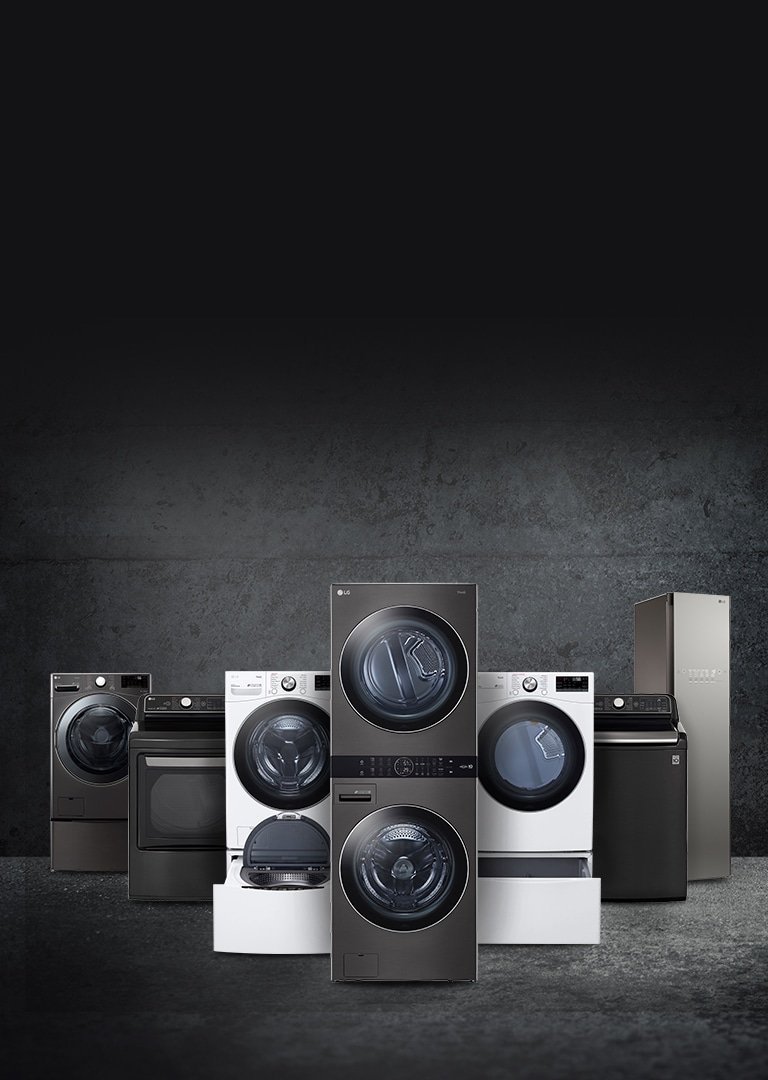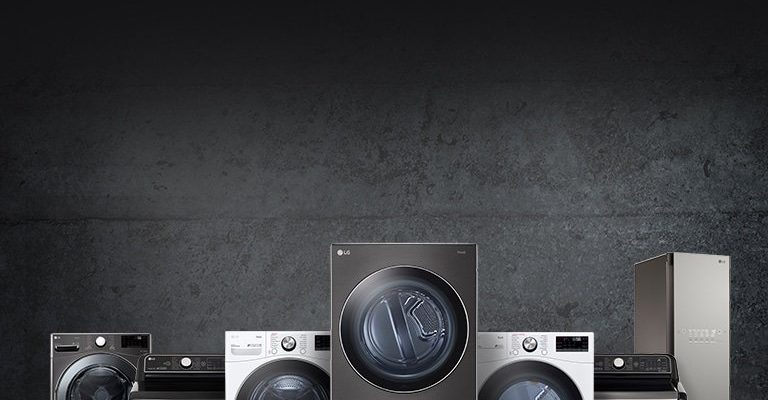
Let’s dig into this with that “coffee chat” vibe—no jargon, just straight talk. Think of appliance registration as putting your name on the guest list for special perks. Sometimes it’s smooth, sometimes there’s a bouncer (a.k.a. manufacturer policy) blocking the door. If you’re renting and eyeing those LG laundry machines, here’s what you need to know about registration, codes, ownership, and what really happens when you try to pair your name with your landlord’s appliances.
Why Registering LG Laundry Appliances Even Matters
So, what’s the big deal about registering an LG washer or dryer? It’s not just something manufacturers suggest to make your life harder. Registration is a bit like getting your name on a school attendance sheet—it keeps you in the loop for important things, and helps sort out issues if they pop up.
Here’s the thing: Registering an appliance with LG unlocks several perks, including easy access to warranty service, troubleshooting support, and timely recall or safety info. Let’s say that new LG washer starts making weird noises, or the remote won’t sync. If you’ve already registered the appliance, the repair process gets much smoother—you don’t have to dig around for receipts or guess what the model number is. Plus, if LG pushes out software updates or maintenance reminders, registered owners are the first to know.
But, of course, there’s a difference between being the owner and just the user. When you’re a tenant, the lines can blur. Are you allowed to register the appliance, or does your landlord’s name need to be on that account? This is where things get a little funky.
Who Can Register: Owner vs. User
Let me explain: LG usually intends for the owner of the appliance to register it. Owner, in manufacturer speak, means the person who paid for the washer or dryer—almost always the landlord in a rental setup. The whole idea is to tie warranty coverage and notifications to the legal owner, since they’re ultimately the ones responsible for repairs and major decisions.
But here’s where real life kicks in. Plenty of tenants use the registration process to access troubleshooting tools or notifications, even when they don’t technically own the appliance. Sometimes, the registration form just asks for basic details—model, serial number, purchase date, and an email. In these cases, nothing’s stopping a tenant from filling it out using their own info, especially if the landlord isn’t especially tech-savvy or concerned with the process.
However, tricky situations pop up if something big goes wrong—like a broken part that’s under warranty. If LG checks the purchase info and sees the name doesn’t match the original buyer, they may require proof of ownership before making any repairs. This is why, before registering anything, tenants should have a quick, honest chat with the landlord. Trust me, it’s easier than dealing with customer support headaches later.
The Registration Process: Step-by-Step
If you’re ready to take the plunge and try registering that LG washer or dryer in your rental, here’s how you’d typically go about it. The process is fairly simple, but a few steps require details you might need to ask your landlord for:
- Grab the model and serial number. These are usually found inside the washer door or on a sticker in the back.
- Jot down the purchase date. If your landlord bought it, you might need to ask for this info. Some registration forms won’t let you proceed without an accurate date.
- Go to the LG appliance registration page. Look for “Product Registration” on LG’s official website.
- Enter your info. Here’s where you’ll be tempted to enter your own name and contact details. If you want to get notices and service reminders, this makes sense. Just know it might trigger confusion down the line if warranty work is needed.
- Submit and save confirmation. Sometimes, LG sends a confirmation code or email. Keep this handy for future troubleshooting or service claims.
Honestly, the process is only as tricky as the info you need from your landlord. If they’re on board, it’s smooth sailing. If not, you might hit a dead end if LG requires proof of purchase or ownership.
Potential Issues Tenants Face When Registering LG Appliances
You might be wondering: Why all the fuss about who registers the appliance? Here’s the nitty-gritty. Registering an LG laundry appliance as a tenant can lead to a few bumps in the road:
First, warranty claims. If you ever need to code a repair issue or sync the washer with LG’s support team, they might ask for proof that you actually own the product. If the warranty is tied to your landlord’s name, you could get stuck in limbo—especially if you didn’t coordinate registration details ahead of time.
Second, personal information. By registering, you’ll be dropping your email and phone number into LG’s system. You’ll get updates, but the landlord may be left out of the loop on important notifications, like recalls or software updates. It’s a good idea to loop them in, so everyone’s up to date.
Third, privacy and communication. If you ever move out and forget to “unregister” yourself, you might keep getting emails about an appliance you no longer use, or the new tenant could end up confused. It’s like getting mail for past tenants—annoying, and sometimes a little awkward.
Honestly, the biggest hassle usually comes when the appliance needs a major repair or replacement. If your name’s not on the purchase receipt, be prepared for extra steps and back-and-forth with both LG support and your landlord.
What LG’s Official Policy Says
You might expect a black-and-white answer, but manufacturers like LG keep things a tad vague—partly because they know real-life situations aren’t always neat. LG officially recommends owners register their appliances to maintain warranty coverage and streamline troubleshooting. In practice, though, the registration form isn’t always strict about who enters the data.
If you dig into their support FAQs (and I have), LG focuses more on the need for a valid proof of purchase when it comes time for warranty service. So, you can register as the tenant, but if there’s ever a big issue—like a defective part, software glitch, or remote pairing problem—the company will want to see the original receipt or lease agreement. Sometimes, they’ll ask for written landlord permission to handle repairs or reset the device.
In other words: Registration is useful, but not a guarantee of service unless you’re the legal owner or have their approval. So, if you plan to register, be transparent with your landlord. It saves everyone a headache down the line.
Troubleshooting, Pairing, and Remotes—What Tenants Need to Know
Let’s talk about day-to-day use, like troubleshooting, code entry for errors, or pairing a remote. You don’t need to be the registered owner to download the LG ThinQ app, use basic remote functions, or reset your appliance. Most tenants can sync their phone, pair a replacement remote, or update settings as needed.
For example, if your LG washer starts flashing error codes or needs a reset, you can:
- Look up the error code in the manual or LG’s online support hub
- Power cycle or reset the appliance (usually just unplugging it or using a built-in reset button)
- Download the LG ThinQ app to troubleshoot or monitor cycles
All of these actions are open to whoever is actually using the machine. The only time “ownership” or registration really blocks your way is if you need a replacement part under warranty, or if LG requires confirmation of original purchase for software updates.
Bottom line: Daily use, syncing, and troubleshooting aren’t usually locked behind registration. But anything involving free warranty repair almost always demands the landlord’s involvement.
Best Practices: Coordinating with Your Landlord
Here’s my honest advice: If you’re thinking about registering an LG appliance as a tenant, start by talking to your landlord. Ask if they’ve already registered the appliance, and if not, whether they’d prefer to handle it or let you do it on their behalf.
- If they’re hands-off, ask for the purchase date and receipt so you can register and handle troubleshooting directly.
- If they’d rather stay involved, offer to add your contact info for service alerts, but make sure all warranty claims go through them.
- Before moving out, remember to update or transfer the registration to the next tenant or back to the landlord.
A little teamwork goes a long way. And hey, it’s also a great excuse to connect and make sure you’re both prepared if the laundry machine ever decides to throw a tantrum.
Are There Alternatives? Universal vs. Brand Registration
If this all sounds like too much hassle, you might wonder if there’s a shortcut—like using a universal remote or third-party registration service. In reality, for LG laundry appliances, only official LG registration unlocks full warranty support and access to updates or troubleshooting. Universal remotes can work for some features—like starting or stopping a cycle—but they won’t help you with warranty service or official repairs.
So, while you can pair a universal remote or try a DIY reset, you won’t get the long-term benefits of proper registration. The safest bet is always to work with your landlord and use LG’s official channels to register and manage the appliance.
What Tenants Should Remember About LG Laundry Appliance Registration
At the end of the day, registering an LG washing machine or dryer as a tenant isn’t impossible—but it’s not quite as simple as slapping your name on it. Registration makes life easier for daily troubleshooting and gives you a direct line for notifications or updates. But when it comes to warranty claims, code resets, and major repairs, the original purchase details and landlord’s approval are what matter most.
If you love a stress-free rental experience (and who doesn’t?), the best move is to have an open chat with your landlord and decide who should register the appliance. Work together to handle any future service needs, and remember to update or transfer registration if you move out.
Renting comes with its own small dance of “who does what,” and LG appliance registration is just another step. As long as you communicate and plan ahead, you’ll be spinning clean laundry—and not your wheels—when it matters most.
